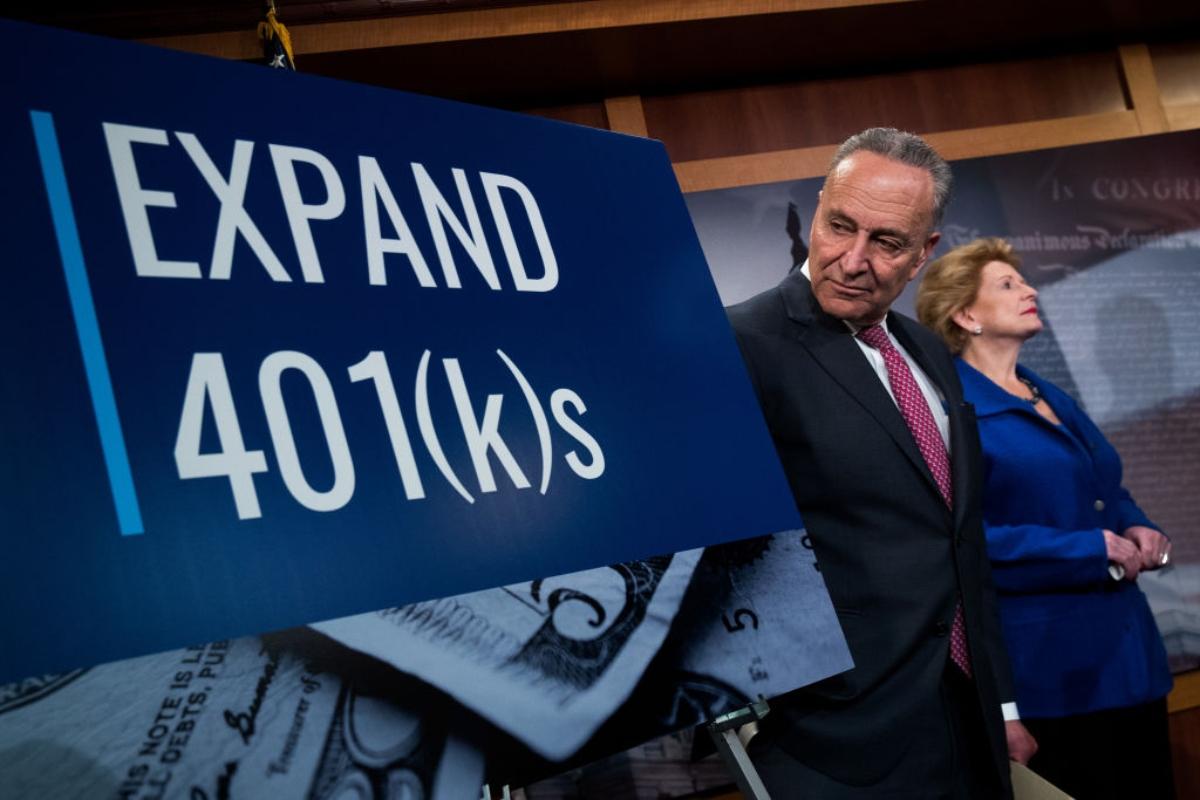Are 401(k) Benefits Worth It Without Employer Matching Contributions?
Is a 401(k) worth it even if you don't get a company match? Although the match is a top benefit, a 401(k) offers other retirement benefits that are worth considering.
Feb. 7 2022, Published 11:49 a.m. ET

Among the retirement savings vehicles, most Americans are advised to utilize the 401(k). The IRS notes that the 401(k) plan is one in which an employee chooses to have a portion of their wages deferred until retirement on a pre-tax basis. A top benefit of a 401(k) is the employer match, but is a 401(k) worth it even without matching?
The 401(k) program is a defined-contribution plan, which means that it depends on the employee’s contributions. The contributions are automatically taken from your paycheck and invested. The company match is a major selling point, but in some cases, IRAs and Roth IRAs can be preferable investments or used in conjunction with a 401(k).
Company matching offers “free money” to employees.
If you’re fortunate enough to work for a company that offers a good 401(k) plan and matches a percentage of your contributions, the standard advice is to contribute at least enough to earn the full match. Otherwise, you're essentially leaving money on the table.
According to Fidelity Investments, the most common arrangement is a 50 percent match up to 6 percent of your pay, but some companies offer a full match up to a certain point.

401(k) contribution limits have been raised multiple times over the years and for 2022, it is $20,500 for younger workers.
What are the negatives of a 401(k)?
The 401(k) has some downsides. First, employers can limit your investment choices, which could result in less-than-optimal returns. In contrast, IRAs can be opened with any broker, which gives you more investment choices.
Second, a 401(k) can come with high administrative fees. With IRAs, you might be able to select lower-fee options. Fees and investment options usually depend on the employer.
401(k)s are sheltered from creditors and allow later contributions.
Aside from employer matching, 401(k)s offer the security of protection from creditors and some plans protect you from federal tax liens. Another benefit of 401(k)s is that you can continue contributing past age 72 as long as you’re working.
401(k)s and IRAs provide similar tax benefits.
A traditional 401(k) and a traditional IRA are funded with pre-tax dollars, which reduces your taxable income in that year. You are taxed upon withdrawal.
Some employers also have a Roth 401(k) option, which means that you deposit after-tax money but avoid taxation upon retirement. Roth IRAs also tax you before contribution.
401(k) contribution limits are higher than IRA limits.
While it’s disappointing to not get a company match, a key benefit of 401(k)s is the higher contribution limits. IRAs and Roth IRAs have a maximum annual contribution of only $6,000, which is much lower than the 401(k) and 403(b) limit of $20,500.
In 2022, the 401(k) maximum increased to $20,500 for those under 50 and to $27,000, while IRA limits remained unchanged. The limits are the same for the Solo 401(k) for self-employed individuals.
Therefore, if your income and savings needs are sufficient, you might use a 401(k) or similar plan to save more money each year. One recommended strategy, if you don’t get a company 401(k) match, is to put the maximum into IRAs first and then use any remaining funds for your 401(k).
